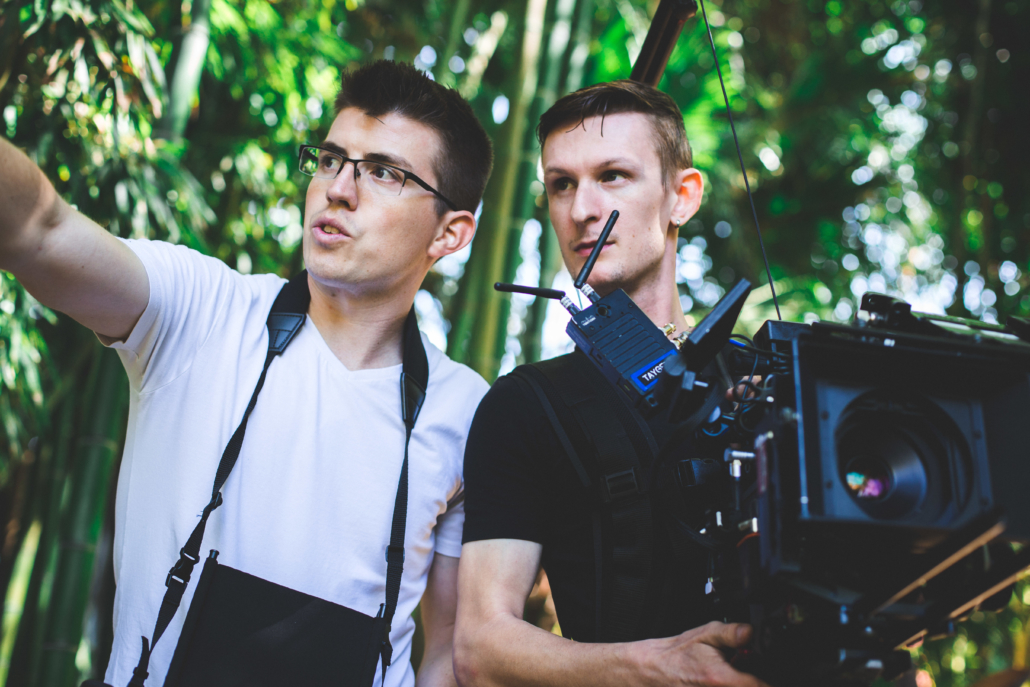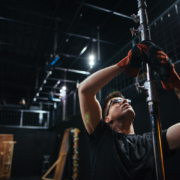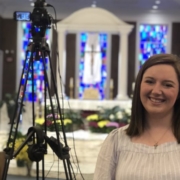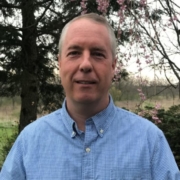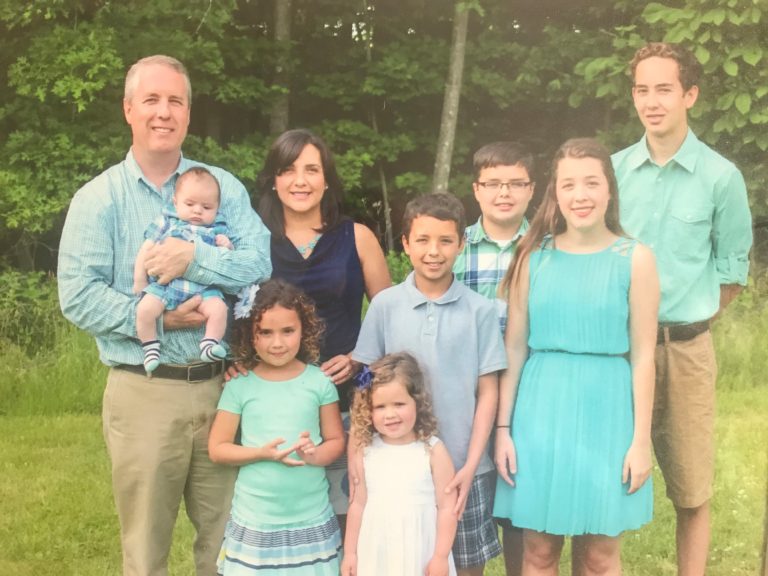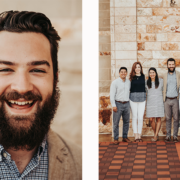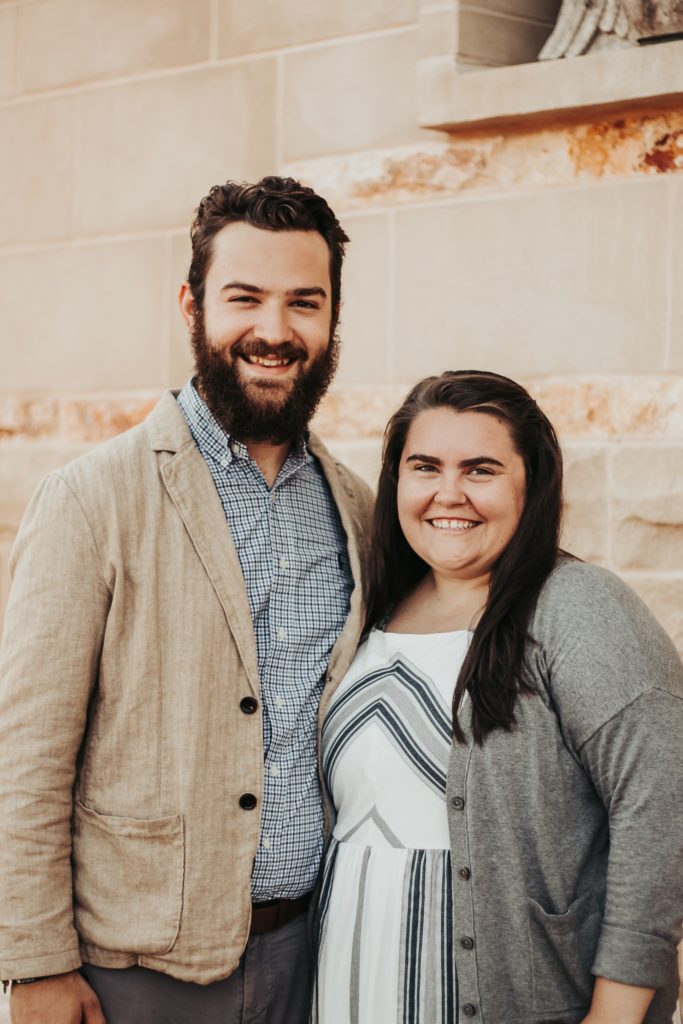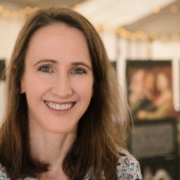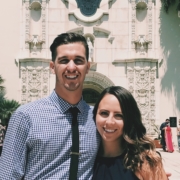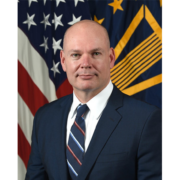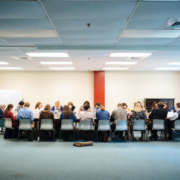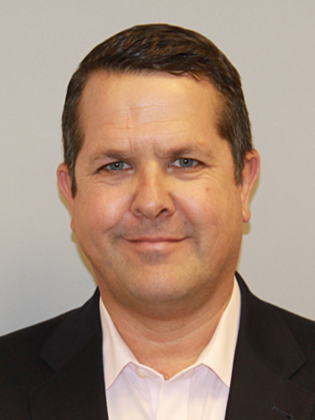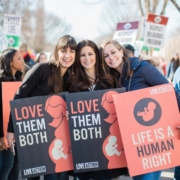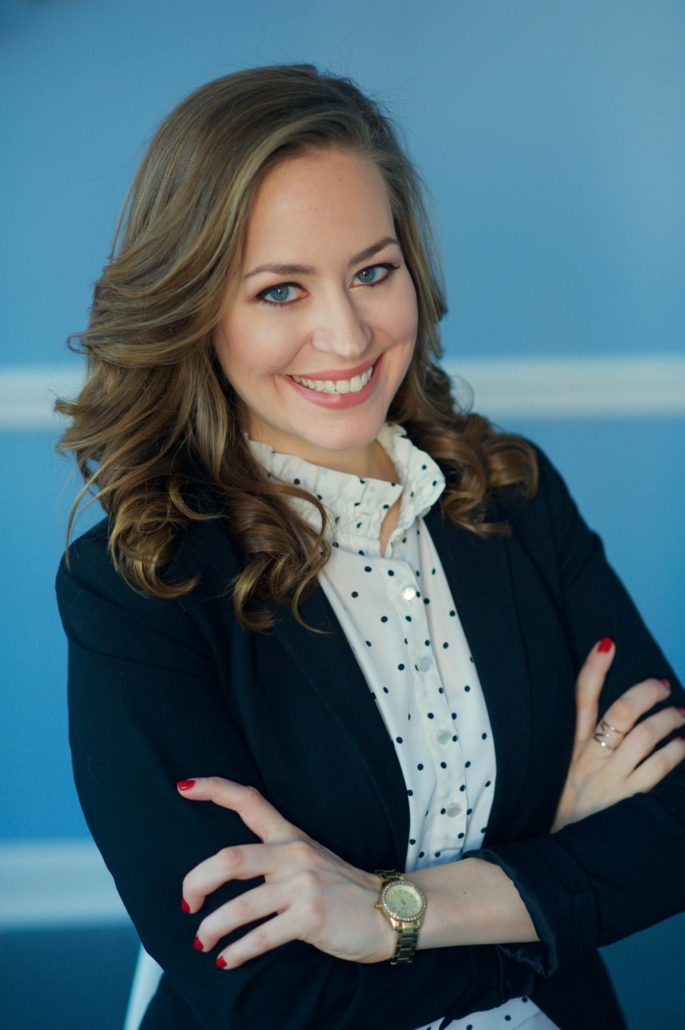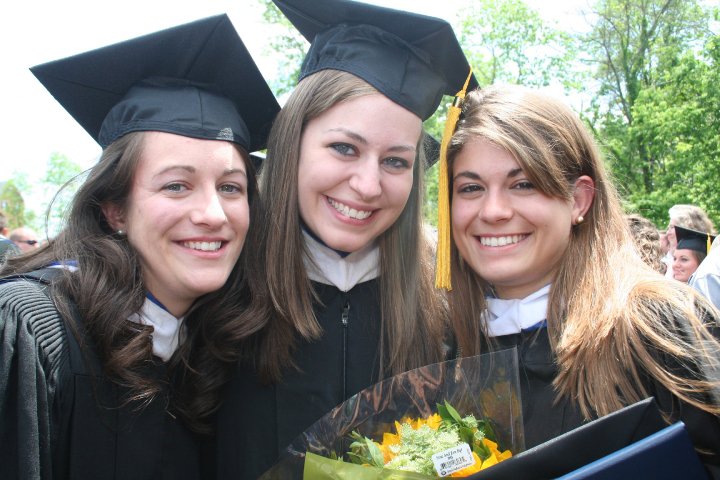With Mission to ‘Impact Culture for Christ,’ JPCatholic University Won’t Settle for Mediocrity
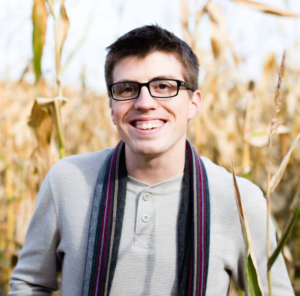
George Simon
George Simon spent his first two years in college at a state university, but he wasn’t satisfied with the education he was receiving. He transferred to John Paul the Great Catholic University in Escondido, Calif., which is recommended in The Newman Guide, and the University made a “huge impact” on every aspect of his life.
“JPCatholic,” the nickname adopted by students and graduates, is a faithfully Catholic institution that combines an exciting emphasis on creative arts and business with serious theology and liberal arts. It has developed a creative community of artists and innovators in the heart of Escondido, which lies between San Diego and Hollywood. The university strives to prepare young people to evangelize and transform culture.
Today, Simon is a professor of film production at JPCatholic and is married to a fellow graduate. The Newman Society recently asked Simon to share about his experience at JPCatholic, and why it’s important for young creative Catholics to develop their artistic gifts.
Newman Society: Can you tell us about your background and relation to JPCatholic?
Professor George Simon: Sure! I was born in Michigan and my family moved to American Samoa when I was seven years old. My parents bought a video camera so that we could record home movies and send them back to our family. My dad agreed to let my brother and I use the camera, and we spent the next seven years running around the island making movies.
In 2006, I enrolled at a state university in Michigan, which was not a good fit. I decided to transfer, and after hearing about a small Catholic film school in San Diego from my mom, I sent in my application and enrolled at JPCatholic in 2008. I graduated in 2012 with an emphasis in screenwriting.
After graduating, I spent four years growing a video production company and working in San Diego, Grand Rapids, and Chicago. In 2016, I married my wife, Melinda, a fellow grad of JPCatholic, and accepted an opportunity to work at JPCatholic. I was awarded my Master’s degree in film producing in 2018 and currently work there as a full-time professor.
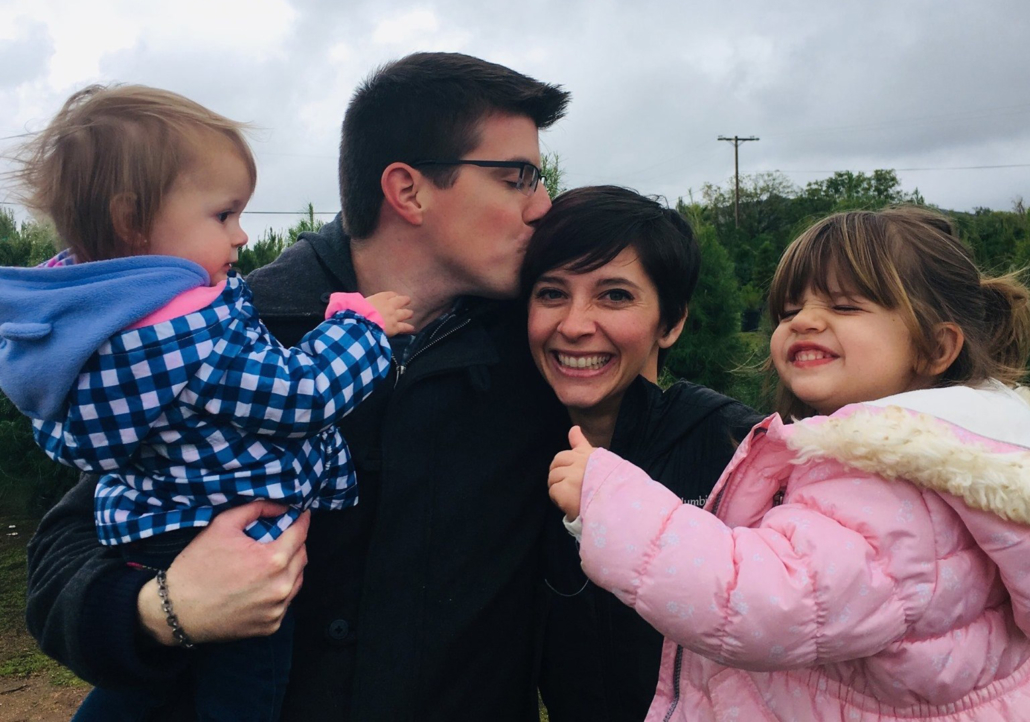
Newman Society: Why did you choose to transfer to JPCatholic?
Professor George Simon: After two years studying broadcasting and cinematic arts in Michigan, I became really discouraged by the lack of hands-on filmmaking classes. I researched other universities in Michigan that had programs related to film and television, but none of them offered a rigorous, hands-on curriculum that involved actually making movies.
When I discovered JPCatholic and saw that I would be taking multiple classes in film production, directing, screenwriting and post production in my first year, I knew it was the right fit. As I went through the curriculum, every class made me say, “Yes, this is exactly what I want to be studying.” Three months later, I was on a train from Michigan to San Diego, and it was the best decision I’ve ever made.
Newman Society: How did you benefit from the Catholic education and formation provided by JPCatholic?
Professor George Simon: The decision to transfer from a secular university with 25,000 students to a small Catholic university had a huge impact on every aspect of my life. I went from a culture where the expectation is that everyone is going to party for four years, straight to a place where I was surrounded by passionate Catholics and where daily Mass and confession is offered on campus.
I was born and raised Catholic and my dad is a deacon, but it wasn’t until I started attending JPCatholic that I ever went to adoration or spent time in an adoration chapel. The theology and philosophy classes helped me to grow in my faith and challenged me to think for myself and tell stories that are good for humanity, instead of just trying to emulate whatever Quentin Tarantino or David Fincher are doing.
Newman Society: Can you share about some of your film projects like Get Clean and Almost Home?
Professor George Simon: Absolutely! Get Clean is a short film that my wife and I made while we were both in college. Melinda came up with the idea of a character whose sins begin manifesting as marks on her skin. The character tries, unsuccessfully, to wash the marks away and is ultimately only able to remove them by receiving the sacrament of confession.
The process of making the film was crazy, because it was put together really quickly. We didn’t have any equipment other than a camera, so I used a giant roll of trash bags as a make-shift tripod. We edited the film that night and submitted it to a scholarship contest an hour before the submission deadline.
We ended up winning the top prize, which was a $25,000 scholarship for Melinda and a $25,000 grant for JPCatholic. Unfortunately, I had withdrawn from the university due to financial reasons and was not eligible for the scholarship. Derry Connolly, the president of the university, used the grant to create an additional scholarship to make it possible for me to come back and finish my degree.
Almost Home is a short film that was created as part of the 8Beats Anthology, which is an anthology film that explores modern parables based on the eight Beatitudes of Jesus Christ. The story follows a truck driver who is trying to get home to his family and a little boy on a road trip with his parents, who cannot stop fighting. The film just concluded its festival run after winning awards at multiple festivals including the Windy City Film Festival in Chicago and the Transparent Film Festival in New York City. The 8Beats Anthology is produced by Catholic Creatives and is scheduled for release in 2020.
My most recent project is a short film titled The Scar, which tells the story of Arthur, who cares for his wife Mercy in the aftermath of an accident that destroyed her memory. In an effort to stimulate her mind, Arthur tells tall tales about the mysterious scar on his chest, which appeared the same day Mercy lost her memory. The film is extremely ambitious and required scenes in feudal Japan, the old West, and the Mediterranean Sea. We’re close to finishing up post-production, and I’m excited to send this small-but-mighty film out into the world.
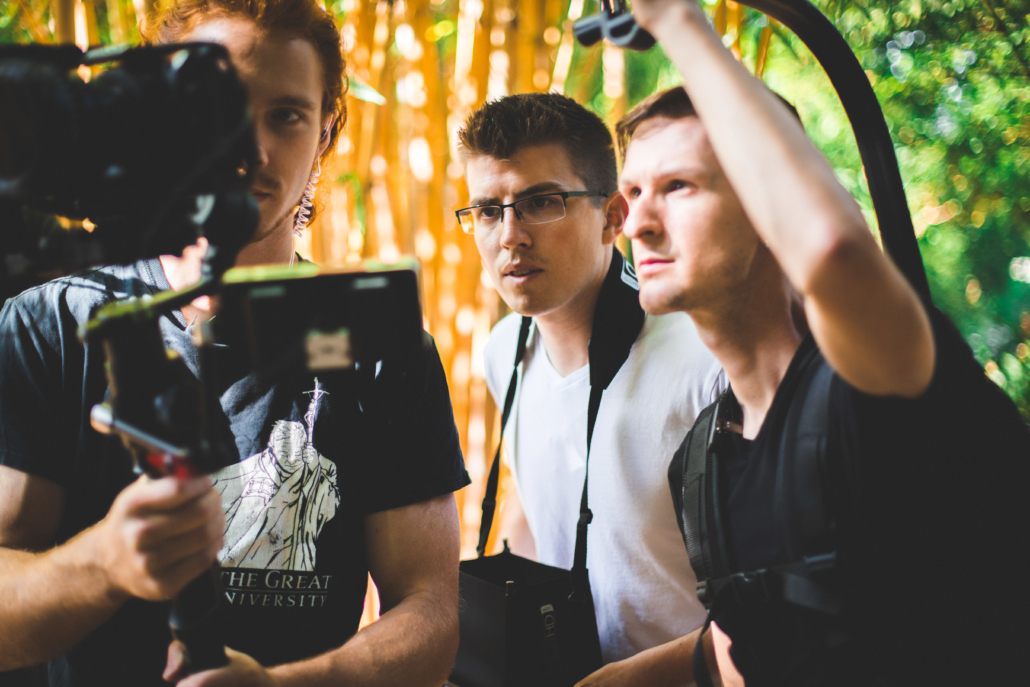
Newman Society: How does the Catholic faith influence the courses you teach as a film professor?
Professor George Simon: As artists who are seeking to impact culture for Christ, we all recognize that we cannot settle for mediocrity in our art. Everyone strives for excellence and pushes one another to be excellent, not just for their own personal benefit, but because the mission we are all undertaking demands that we become exceptional storytellers. Otherwise we have no ability to compete in an industry that has immense power to either call humanity closer to Jesus Christ, or to push them away.
I teach a Fundamentals of Production class that is basically movie making 101—students learn how to use a camera, record audio, set up lights, write, produce, film and edit. It can seem challenging to infuse a demonstration on how to set up a C-Stand with the deep theological truths of the Catholic faith, however, even in these technical moments is the collective faith of the students and faculty that have the greatest impact. The Catholic faith that is shared between my students is powerful and influential.
Newman Society: Why do you think it’s important for young creative Catholics to develop their artistic gifts? Why do you think it’s important for the Church to be involved in the arts?
Professor George Simon: For me, as a filmmaker, developing my creative gifts and growing as an artist is inseparable from my journey to heaven. God invites every one of us to develop our talents and when we accept that invitation, we glorify Him and show the world the unique beauty He has planted in our souls. Every young Catholic artist should develop their creative gifts, because it is an integral part of who God made them to be.
One of the first things I tell my students is that, as filmmakers, we live in the best possible time in human history to make movies. As cameras and film equipment have become more accessible, it has become more possible than ever to create content that can compete with major studios. It is crucial for young Catholic artists to develop their gifts in order to become exceptional storytellers and earn the right to be heard.
Studios and networks spend billions of dollars each year creating stories that have tremendous impact on the world. In order to fully answer the call to “make disciples of all nations,” it is imperative that young artists are perfecting their raw talents into precise and experienced craftsmanship, enabling them to share the experience of God’s love, whether overtly or subtlety, in every script they write, set they work on and story they create.
